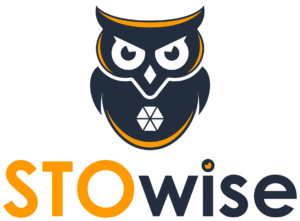
ARK Invest CEO Cathie Wood’s investments have become a mixed bag in the last three years. Wood founded ARK Invest with disruptive innovation in mind, transitioning from a chief investment officer at AllianceBernstein to a CEO.
Behind Wood’s disruptive innovation strategy is the belief in companies’ long-term growth that can disrupt/displace products or services. To that end, her flagship ARK Innovation ETF (ARKK) often includes early-stage companies with the potential for high growth, which could turn into significant long-term gains.
However, ARKK shows -24.54% returns on a 3-year scale. In 2020, when the Federal Reserve ramped up its historic money supply boost, ARKK showed +152.82% annual return. This indicates macro reliance on the “disruptive innovation” concept. Double-digit negative returns followed in 2021 (-23.38%) and nearly tripled that in 2022 (-66.97%) when the Fed began its interest rate hiking cycle.
That said, ARKK appears to be back on track with +27.18% year-to-date returns. Outside of staple ARKK stocks, such as TSLA, ZM, and ROKU, which other lesser-known growth stocks have gained Wood’s attention?

Join our Telegram group and never miss a breaking digital asset story.
Unity Software (NYSE: U)
The popular video game engine company had a rough last couple of months. The Unity engine has been the main alternative against heavyweights like the Unreal Engine 5 from Epic Games for years. As of 2023, 6sense reported Unity having 29.83% market share vs Unreal Engine’s 16.15% across game developers.
Although these figures point to Unity as the dominant force in the $249.6 billion video gaming market, it bears noting that indie developers largely took advantage of Unity due to its very affordable (or free) pricing scheme. The company monetized that popularity in September by introducing “runtime fees” for every game installed past a certain revenue threshold.
The measure received massive cross-platform backlash with boycott threats, eventually leading to the resignation of Unity CEO John Riccitiello last month. Yet, after the policy reversal, analysts see U as discounted, dipping 24% over the last three months.
At the end of September, ARKK had Unity Software (U) listed at 3.7% weight. Based on 18 analyst inputs pulled by Nasdaq, U shares are a “buy.” The average U price target is $31.77 vs the current $28. The high estimate is $49 vs the low forecast of $20 per share.
UiPath (NYSE: PATH)
Automation has always been discussed as a relief promise and a threat to workers. Since its DeskOver origin in 2005, UiPath has become a leading robotic process automation (RPA) company. RPA software focuses on automating repetitive office tasks, freeing humans to focus on innovation. These tasks can range from accounting to manufacturing.
In September, for Q2 FY24, UIPath reported 19% year-over-year revenue growth to $287.3 million, with annual recurring revenue (ARR) showing 25% YoY growth. As a more predictable metric, ARR pins UIPath as a high-growth company. For the full FY24, UiPath expects the revenue to go up to $1.278 billion from $1.059 billion in FY23.
Cathie Wood’s ARKK has UiPath listed at 6.9% portfolio weight. Based on 16 analysts pulled by Nasdaq, PATH stock is a “buy”. The average PATH price target is $19.79 vs the current $17.19. The high estimate is $25 vs the low estimate of $16 per share.
Twilio (NYSE: TWLO)
Twilio is a cloud computing platform that is becoming one of the leading players in the communications platform as a service (CPaaS) market. This emerging market is estimated to grow from $11.6 billion in 2022 to $172.91 billion by 2032, with a 31% CAGR.
Twilio offers developers a full suite of APIs to deploy their apps, regardless of whether they need chat, video, voice, or SMS. This allows app developers to focus on building rather than infrastructure or maintenance.
Last Thursday, Twilio dropped its Q3 2023 earnings report, showing 5% year-over-year revenue growth to $1,034 million. Twilio’s gross profit increased from $462 million to $515.3 million. Twilio’s high-growth model is based on recurring subscriptions like other cloud stocks. Given this business model, the company focuses less on immediate net income.
To that end, Q3 showed a $109 million loss from operations. Yet, it was a drastic 76% loss contraction from a year-ago quarter. Due to restructuring costs, expenses, and investments, Twilio’s profitability has significantly decreased, expressed by the GAAP operating margin going from 46% to 11% from a year-ago quarter.
ARKK lists TWLO stock at 4.1% weight. Based on 19 analysts pulled by Nasdaq, TWLO shares are a “buy”. The average TWLO price target is $68.94 vs the current $58.01. The high estimate is $110 vs the low forecast of $50.
Which technological sector are you exposed to the most? Let us know in the comments below.
The post 3 Stocks Cathie Wood is Counting on for High Disruptive Growth appeared first on Tokenist.
